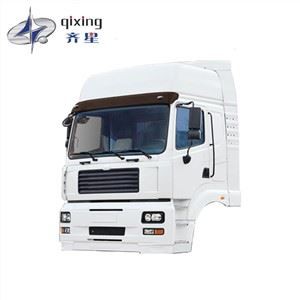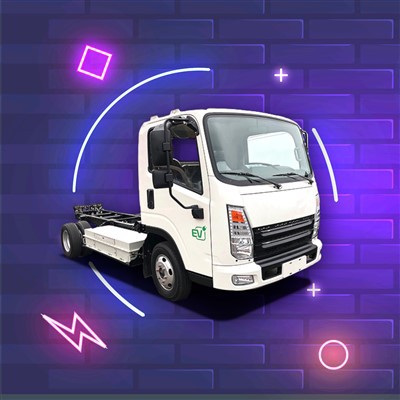Understanding Rush Truck Lease: A Comprehensive Guide

Introduction
In the world of commercial trucking, the decision to lease a truck can be just as crucial as the choice of vehicle itself. This is where the Rush Truck Lease comes into play. Rush Enterprises offers a variety of leasing options tailored to meet the needs of business owners, from startups to established fleets. This article delves deep into the intricacies of Rush Truck Lease, exploring its benefits, processes, and how it fits into the larger picture of logistics and transportation.
What is Rush Truck Lease?
Rush Truck Lease is a leasing program provided by Rush Enterprises, one of the largest network of commercial vehicle dealerships in the United States. This program allows businesses to lease trucks instead of purchasing them outright, thereby preserving capital and offering flexibility in managing fleets. The program caters to various types of trucks including medium-duty and heavy-duty vehicles, making it a versatile choice for different industries.
Benefits of Leasing Trucks through Rush
- Lower Monthly Payments: Leasing generally results in lower monthly payments compared to purchasing, freeing up cash flow.
- Flexibility: Leasing allows for easier upgrades to newer models as business needs change.
- Maintenance Services: Many lease agreements include maintenance services, reducing unexpected costs.
- Tax Benefits: Lease payments can often be deducted as business expenses on taxes, providing financial advantages.
Types of Rush Truck Lease Programs
Rush Truck Lease offers several leasing options to cater to different business needs. Understanding these can help businesses make informed decisions.
Fair Market Value Lease
This lease type allows businesses to return the truck at the end of the lease term or buy it at its fair market value. It typically features lower monthly payments and provides flexibility for businesses looking to keep options open.
Capital Lease
With a capital lease, customers typically have the option to purchase the vehicle at the end of the lease or continue to make payments. This is a great option for businesses planning to use the truck for an extended period.
Operating Lease
An operating lease is suitable for businesses that prefer to lease trucks for a shorter duration without worrying about ownership. This type of lease often includes maintenance packages, making it ideal for companies that want to avoid unexpected repair costs.
The Leasing Process with Rush Truck Lease
Understanding the leasing process can help streamline the experience and eliminate potential hassles.
Step 1: Determine Your Needs
Identify the types of trucks required for your operations. Consider factors like load capacity, fuel efficiency, and the specific tasks the truck will perform.
Step 2: Explore Leasing Options
Visit Rush Enterprises’ website or contact a local dealer to explore the available leasing options. Review the features, benefits, and costs associated with each leasing type.
Step 3: Application and Documentation
Submit an application and required documentation, which may include proof of income, business registration details, and previous credit history.
Step 4: Review Lease Terms
Carefully review the lease terms provided by Rush Enterprises. Pay attention to mileage limits, maintenance responsibilities, and any potential fees.
Step 5: Sign and Drive
Once everything is in order, sign the lease agreement and pick up your truck. Make sure to keep a record of all documentation for future reference.
Financial Considerations for Rush Truck Lease
Understanding Costs
Leasing a truck involves several costs beyond the monthly lease payment. Knowing what to expect can aid in budgeting.
Monthly Lease Payments
The primary cost associated with leasing, calculated based on the truck’s value and the lease term.
Additional Fees
Fees can include acquisition fees, mileage overage charges, and end-of-lease disposition fees. Make sure to account for these when budgeting.
Maintenance Options Available in Rush Truck Lease
Rush Truck Lease offers various maintenance options that can simplify vehicle upkeep and ensure safety on the roads.
Included Maintenance Plans
Many leases come with maintenance packages that cover routine services such as oil changes, tire rotations, and inspections. This can significantly reduce the hassle and expense of unexpected repairs.

Optional Maintenance Add-Ons
Businesses can often choose to include additional services like roadside assistance and enhanced warranty features for peace of mind.
Practical Examples of Rush Truck Leasing
Case Study: A Startup Logistics Company
A small logistics company, “QuickDelivery”, chose Rush Truck Lease to expand its fleet while managing its budget. With a fair market value lease, they easily upgraded their truck every few years to meet their customer demands, without the massive upfront costs of purchasing.
Real-World Application: Large-Scale Delivery Services
A large e-commerce firm, “ShopFast”, utilized Rush Truck Lease to manage a fluctuating demand during peak seasons. By leasing additional trucks, they could easily scale their operations without long-term commitments.
Tips for a Successful Rush Truck Lease Experience
Know Your Business Needs

Clearly define your business requirements before entering a lease agreement.
Read the Fine Print
Thoroughly review the lease agreement and ask questions if terms are unclear.
Plan for Future Needs
Consider future growth to ensure the lease agreement can accommodate potential expansions or changes in business operations.
Frequently Asked Questions
What is the minimum lease term for a Rush Truck Lease?
The minimum lease term typically ranges from 24 to 36 months, depending on the specific program.
Can I customize my leased truck?
Yes, customization options may vary by lease agreement; however, it’s essential to clarify as some modifications might not be permitted.
What happens if I exceed my mileage limit?
If you exceed the agreed mileage limit, you may incur additional fees based on the lease agreement. It’s advisable to discuss potential excess mileage with Rush Enterprises before signing.
Are there penalties for early termination of a lease?
Typically, there may be penalties associated with early termination. It’s crucial to understand these before entering an agreement.
Can I buy my leased truck at the end of the lease term?

Yes, most lease agreements, particularly fair market value leases, provide an option for purchasing the vehicle at the end of the term.
Conclusion
Understanding the details of Rush Truck Lease can empower businesses to make smarter decisions regarding their transportation needs. By weighing the benefits, understanding the leasing process, and preparing for future business demands, companies can navigate the leasing landscape effectively.
